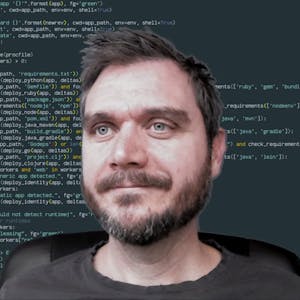This workshop aims to give you an introductory module on the general aspects of Open Source. Follow Claudio Wunder from the OpenJS Foundation to guide you on how the governance model of Node.js work, how high-level decisions are made, and how to land your very first contribution. At the end of the workshop, you'll have a general understanding of all the kinds of work that the Node.js project does (From Bug triage to deciding the Next-10 years of Node.js) and how you can be part of the bigger picture of the JavaScript ecosystem.
The following technologies and soft skills might be needed):
- Basic understanding of Git & GitHub interface
- Professional/Intermediate English knowledge for communication and for allowing you to contribute to the Node.js org (As all contributions require communication within GitHub Issues/PRs)
- The workshop requires you to have a computer (Otherwise, it becomes difficult to collaborate, but tablets are also OK) with an IDE setup, and we recommend VS Code and we recommend the GitHub Pull Requests & Issues Extension for collaborating with Issues and Pull Requests straight from the IDE.
The following themes will be covered during the workshop:
- A recap of some of GitHub UI features, such as GitHub projects and GitHub Issues
- We will cover the basics of Open Source and go through Open Source Guide
- We will recap Markdown
- We will cover Open Source governance and how the Node.js project works and talk about the OpenJS Foundation
- Including all the ways one might contribute to the Node.js project and how their contributions can be valued
- During this Workshop, we will cover Issues from the nodejs/nodejs.dev as most of them are entry-level and do not require C++ or deep technical knowledge of Node.js.
- Having that said, we still recommend enthusiast attendees that want to challenge themselves to "Good First Issues" from the nodejs/node (core repository) if they wish.
- We're going to allow each attendee to choose an issue or to sit together with other attendees and tackle issues together with Pair Programming through VS Code Live Share feature
- We can also do Zoom breakrooms for people that want to collaborate together
- Claudio will be there to give support to all attendees and, of course, answer any questions regarding Issues and technical challenges they might face
- The technologies used within nodejs/nodejs.dev are React/JSX, Markdown, MDX and Gatsby. (No need any knowledge of Gatsby, as most of the issues are platform agnostic)
- By the end of the Workshop, we'll collect all (make a list) the contributors who successfully opened a Pull Request (even if it's a draft) and recognise their participation on Social media.

























Comments